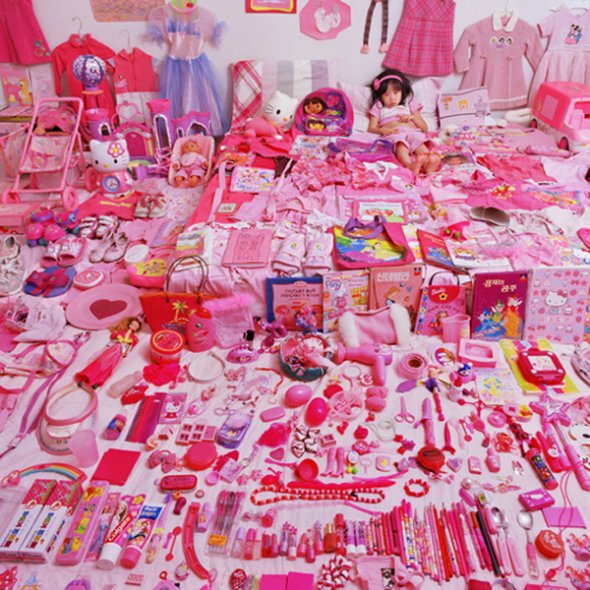Past Caring
A study day on Motherhood, Servitude and the Delegation of Care at Birkbeck University in May 2011 provoked two writers to examine the politics, pieties and pain clustering around reproductive labour. Madame Tlank contests the premise that carers must care, however subversively framed, while Mira Mattar cuts into the modern Master/Slave dialectic of the Gumtree ‘au pair wanted’ ad. Finally Tlank assembles careworn voices in a multi-cautionary verse
The family is the basic unit of government
— Michele Bachman, US presidential aspirant
MaMSIE is a fairly new journal (three issues in the past two years) published under the Birkbeck umbrella, attempting to explore and propagate a new discipline of ‘studies in the maternal’ – MaMSIE stands for ‘Mapping Maternal Subjectivities, Identities and Ethics’. This informal study day (participants almost all female and white, plus two screaming babies, n.b., no creche was provided!) attempted to bring together several perspectives on the subject of servitude and the delegation of care.
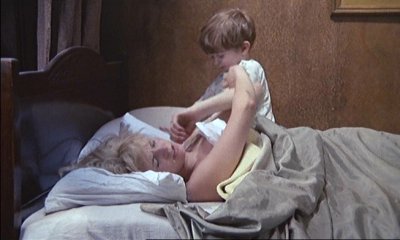
Image: Still from Ken Loach's Poor Cow, 1967
The atmosphere was very good, with people actually listening to one another and trying to expand on what they heard rather than competitively showing off individual research. It was starkly different from other conferences, which are often male dominated. But even so, the study day didn’t quite come together. Although the philosophical, historical and sociological perspectives all focused on the same subject, they dealt in observation rather than analysis and investigation, failing to ask some very basic questions. At its worst it felt like mothers discussing their personal experiences of motherhood.
An exception was Stella Sandford’s philosophical enquiry into ‘maternal labour’, which served as the opening keynote talk. Her attempt to think ‘the maternal’ within a Marxist framework was interesting, if problematic, for several reasons, some of which Sandford herself was well aware of and sought to address. She thought that the ‘lived contradiction’ at the heart of the concept of maternal labour (that I will come to shortly) might help rethink Marx’s concept of labour and, more speculatively, that it might be a sign of an inherent non-subsumability of the maternal under capital.
Although she articulated this in a beautiful trajectory of thought and was also well aware of the thin line she was treading, I can’t help but ask: why? Why would it be desirable to come up with such a concept of maternal labour and such a conclusion? Why locate the maternal outside of capital and history, so to speak? As though some deep-seated, pre-capitalist residue attached itself to the mother, implying ‘traditional’ models of maternity? Does it not make it even harder to analyse materially a mother or carer’s position vis-a-vis capital, and render it impossible to tear at capital’s tentacles from this presumed ‘outside’? Does it not delegate to some higher plane the subjective investment in labour which is well known to have been demanded increasingly of workers of all kinds over several decades?
The lived contradiction within the concept of maternal labour according to Sandford is that the mother/carer is both a capitalist subject and a maternal subject. But the maternal clashes only with the crudest caricature of the Marxist understanding of ‘labour’.1 Sandford points to Marxist feminist analyses of domestic labour, but sets the work of child rearing apart from cleaning, cooking etc. due to the emotive investment in, and arguably more rewarding nature of the work. Yet the work of child rearing has the same reproductive agenda as these things: it quite literally replenishes the work force, or reproduces labour power. Childcare is either directly waged, or unwaged and ‘paid for’ by a wage (be it a man’s or the mother’s own), or by state benefits (the ‘social wage’). The carer’s work cannot be separated from the capitalist labour relations that make up her life and measure out her subsistence.
No matter how much ‘caring’ there is in care work, no matter how much love is invested in the work of bringing up a child, these emotions do not arise in some pure vacuum, free of the imperatives of capital. Furthermore these emotions are channelled and redirected through state intervention in order that their object – the child – may ‘mature’ into something meeting labour market specifications. The state is more receptive than ever to business lobbying on the form of reproduction and training.2
The maternal referred to in this study day and by Sandford is quite a recent concept: the loving, caring mother is a product of, and expectation within, the nuclear bourgeois family. Throughout most of modernity, mothers were by no means automatically expected to care for their children, no matter what class they belonged to. As Shulamith Firestone showed in ‘Down with Childhood’, in Europe up until the 19th century (and in some areas even the 20th) a poor mother’s children were given to wet nurses almost right after birth; they played in packs in the village squares and started working life as soon as they were physically able, doing work (in factories, shops, on the streets) that today would be called ‘child labour’, or learning trades as apprentices.3 Rich mothers would give birth and then pass their children on to wet nurses and tutors and not have very much to do with them either. The presumption of the caring, protective mother is itself a product of fairly advanced capitalist society. And it goes hand in hand with the concept of the child as an unfinished creature, in need of protection, control and care. The emergence in the 19th century of ‘childhood’ as a separate stage of life, and children as separate (not yet) human beings, reinforced through the eventual separation of children from the ‘adult world’ by mass primary schooling, developed into what can be called ‘abstract childhood’.
A child possesses (or rather is possessed by) childhood for the sublimely tautological reason that the subjectivity ascribed to her is determined more by the single, shared attribute of being-a-child than by all the particular differences between herself and other children.4
From the 19th century onwards, the child is treated as an incompletely formed subject, requiring special care and proper guidance towards the eventual attainment of serviceable adult identity, until which time precocious adult (i.e. individual) traits are a matter for discipline or therapy, according to various kindergartens of thought.5 The requirement to care for and ‘shape’ the vulnerably deficient or ‘innocent’ child pushes the mother into the work of mothering, i.e. she is made into a carer, with her role and that of the child reinforcing one another. 6
Subjective deficiency is also ascribed to the disabled and the elderly in particular, but at the same time it is projected in general across an ever more provisional adulthood. A decades long drive (supply side Thatcherism, the Third Way, the Big Behavioural Society) to hold individuals ‘responsible’ for whatever economic, legal or medical position they find themselves in has been shadowed at every turn by the assumption that the same individuals are incapable of making the ‘right choices’ without psycho-managerial nudging or outright institutional coercion.7 This presumption is applied with particular ferocity to mothers/carers and their ability or otherwise to care ‘appropriately’. The extension of abstract childhood to mothers and other adults whose job it is to provide care is evident in their subjection to continuous training and retraining, surveillance and expectation.
The historical papers presented by Kate Pullinger and Lucy Delap on the study day showed how something similar played itself out in Victorian times: as a rule, servants were subject to infantilisation, their assumed place was on a level with the employers’ children.8 The employer had ultimate control over both groups and directly controlled the servants’ care of the children. Economically speaking, children and servants were both completely dependent on the master of the house. Sadly there are few incidents known where servants and children ganged up together against their infantilisation and oppressive lives. Firestone’s call for mothers to gang up with their children has likewise gone unheeded.9
Rather than arguing, as Sandford does, that maternal labour is distinct from other labour because of the element of caring for the object of this labour, might it not be a stronger feminist argument to say that a care worker may be just as indifferent to the object of her care as a factory worker to the product of their labour? Care work does not need to be done with care, and often can’t be done with care, even if workers wanted to. With some of the lowest wages in the labour market and a workload to kill a (wo)man, there wouldn’t be much time to invest in care. The assumption that the work needs to be done with care is moralistic and unhelpful at best, but at worst it forms an oppressive imperative: in waged labour, care workers are expected and under pressure to care (and control where applicable) under dismal conditions. This pressure usually comes directly from the (private and/or state) employers or the ‘customers’. In unwaged maternal labour, mothers are put under pressure to exert a certain level of care (and control) over their children. If this is not done ‘well enough’, the child might be taken ‘into care’. State management of reproduction is more ambitious than ever.10
The institutional care of old people in the UK provides clear empirical evidence against the argument that maternal – or, by Sandford’s own extension, more broadly caring labour – might somehow contain a remainder that is not subsumed under capital. Recent events make it painfully obvious that the whole form of caring – not just its financialised background, but the way the everyday labour is performed – is directly determined by capital transactions of the most abstractly speculative kind.
Leveraged capital started flowing into the care homes sector around five years ago when ‘investors and lenders’ thought the value of the businesses could only increase as the population aged.11 Banks were ‘happy’ to lend to companies with ‘steady income streams from government contracts’ (50 percent of care home places are municipally funded) and plenty of real estate; all the more so because the debt could immediately be sold on in securitised form. ‘It was a bit like the internet bubble’ or ‘the economic surge generally’, said the CEO of Care UK (Bridgepoint Capital). Meanwhile the private equity owners would sell the underlying real estate at a premium obtained by signing up to automatic annual rent increases, using the proceeds to expand the businesses through more buy-outs and then sell them on for 12 or 14 times projected earnings. This model left little reason to invest in labour and facilities while the boom continued, but investment became altogether impossible for second or third generation owners as rents continued to rise automatically after credit dried up in 2008 and state payments were subsequently frozen or cut.
This non-investment is no abstract matter. Long before Southern Cross (bought, inflated and sold on just in time by Blackstone) collapsed and The Financial Times noticed the story, Private Eye had spent years reporting each case of patients dying dehydrated, stuck to the bed by untreated pressure sores and covered in their own piss and shit. This is not a situation that care workers (paid less than £7 an hour at ‘senior’ level in the private sector or as much as £8.90 in those homes not yet divested by councils) can improve through a supplement of uncapitalised ‘love’. Not when a ratio of seven carers to 89 ‘high maintenance’ patients is normal, or when work schedules, available supplies of food and medicine and all aspects of the physical environment depend on the financial position of over-leveraged ‘owners’ and the state. One telling common experience of carers and residents in these institutions, according to the FT, is that neither would dare report conditions to the regulator’s inspectors: ‘they’re scared, because they’re dependent.’
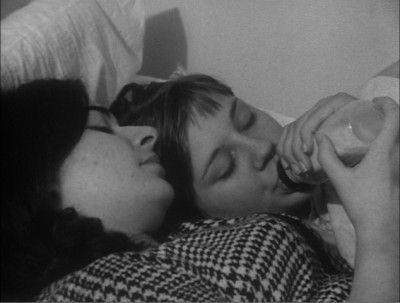
Image: Still from Allan King's 1967 film Warrendale documenting the care of emotionally-disturbed children in a Canadian group home
The private market in care for the elderly is mediated throughout by the state, most obviously as wholesale purchaser of services and source of pension income, but also, particularly in the UK, due to years of legislation cultivating a private pensions industry and asset price inflation in private equity and real estate.12 And in the end, the state will probably have to bail out ‘care homes’ just like other branches of finance capital before them. (It’s also worth noting that government plans for the future delegation of wider NHS services closely resemble the private care home model, slow and predictable crash notwithstanding.)
The state likewise does much to define the form of maternal labour in the narrow sense, albeit less visibly and with the emphasis more on policing than financial brokerage. Welfare state services supposedly supporting single and some other mothers are inseparable from control and surveillance mechanisms, to be endured in exchange for a meagre cash payment. Education increasingly incorporates employers’ qualitative demands for future labour power, building the desired psycho-social ‘training’ into curricula.
To a degree connected to their individual level of state dependency, mothers and other unwaged carers are faced with the imperative to make sure their children become suitable future labour power, (the middle classes, meanwhile, internalise these same imperatives and hold themselves responsible for achieving ‘desirable outcomes for their children’). At the same time private capital permeates the ‘frontline’ provision of welfare services, with delegation of medical, benefit and housing functions to PFI-type contractors (paid by ‘results!’) conditioning the relation between mother and child in manifold ways.13
Motherly work means having to make sure your child adjusts to reality as constituted by capital. Women who depend on the state for money are more exposed than others to state interference (itself often subcontracted to private capital) to this end. Motherly love can change just as much according to questions of rent (for example) as a commercial care service will. Low levels of state financial support – or low wages part funding unwaged care – are just as much of a hindrance to the subjective investment in care as is an hourly wage of £8. Single mothers (along with disabled recipients of care) are pushed back into competing for work, widening the labour pool at employers’ disposal and thereby dragging wages and conditions downwards. This hits mothers on benefits especially hard as it is yet another pretext to control what they do and how they care; it also requires them to take part in capitalist labour relations from the opposite side, effectively becoming employers themselves by sending their children either to a nursery or to a paid carer. All these instances show maternal labour to be subsumed, but none of them stop a mother (or child) from being in and against capital.14
Sandford’s theoretical attempt to show a romantic revolutionary gap in the capital relation, to show the maternal not to be fully subsumed under capital, may arrive at something quite opposed to what she was hoping for.
If the mother or carer’s full involvement in capital as a social relation is not acknowledged, then how can we analyse and understand it in order, ultimately, to fight and break it? (Not even to speak of the counter-productive effect of setting the mother/carer apart from other workers.) And the same holds for the state’s role in private capital. Reformists’ calls to enlarge the role of the state completely ignore the fact that rather than some ‘temperate player regulating the wild excesses of capital’ the state is a co-player, writing the rules and facilitating the cash flow for a smooth ride on the wild, exciting seas of people’s bloody lives.

Image: JeongMee Yoon, The Bue Project - Seunghuyk and His Blue Things, 2007
Looking for a Real-Life Mary Poppins!
Dear Au Pair,
I am Andrea and my partner is Christopher. We have two boys, Seb who is seven and Barnaby who is five. They both attend the local primary school which is a ten minute walk from our lovely home in Hampstead, North London. After school they keep busy with numerous activities – football, swimming, gymnastics, music and street-dance. Christopher and I are lawyers and work full-time. When we’re not working we love nothing better than to spend time with the family. We are a very warm and welcoming family who have loved having an au pair. Our last au pair was with us for more than a year, she became part of the family within days and will be a lifelong friend.
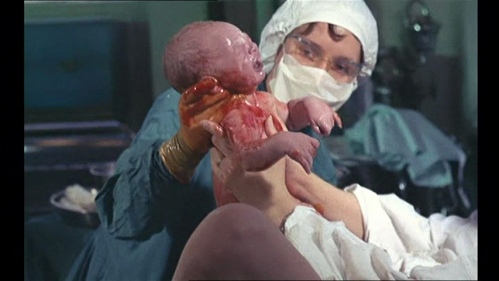
Image: Still from Ken Loach's Poor Cow, 1967
As I said, our house is lovely and very close to the city centre. There are lots of buses and tubes and we even provide a bicycle. Christopher and I cycle everywhere. Ideally we’d want a fit, sporty au pair who feels confident cycling on London’s busy streets. A helmet is a must! So no vanity please ladies! I should say here we’re only looking for female applicants.
It is also important that you can take on extra hours in school holidays which we will, of course, pay for, though we do try to take as many of their holidays off as we can which means that you should get plenty of holidays yourself! We never work in August, always take two weeks off at Christmas and a week at Easter – so that’s seven weeks already. Your normal working day would be 08:00 to 19:30.
Your duties with the children:
• wake, feed, dress the children and take them to school (20 minute walk)
• collect them from school and activities
• help the children with their homework
• take them swimming at the weekend
• cook healthy, simple meals for the children (we provide recipe books)
Other duties:
• clean and tidy the house
• do the family’s washing and ironing
• provide me with an extra pair of hands
• feed and walk the dog
What we can offer you:
• a large room
• a private bathroom (to share with the children, your rooms will be linked via the bathroom)
• wi fi access throughout the house (if you don’t have your own computer you are welcome to share with us and the children, but I should warn you they do like their computer games!)
• We do not provide a television in your room because we want you to feel at home as part of our family and use the TV or watch a DVD in the living room
• You can use the telephone anytime you want (if you write down your calls on the pad next to the phone we can easily deduct the cost of your international calls from your weekly wages)
• wonderful food
• international travel with us on holidays
• £120 per week
You must be:
• between 20 – 40 years old
• fluent in written and spoken English
• a confident driver
• energetic, sporty and have a sunny disposition (even in London’s wet weather!)
• flexible (sometimes we come home late from work and need you to be there, we will pay for extra hours)
• quiet, neat, clean and showers at least once a day (you’d be surprised!)
• an enthusiastic but tidy cook, all our meals are cooked from scratch!
• will love our children and help them discover the world
• a non-smoker
Ideally we want someone who is:
• confident but not domineering
• not embarrassed to sing and read with funny voices
• warm, patient, supportive, perceptive
• creative with their own ideas of things to do with the children that they will all enjoy
• a dog lover
• at home in museums and galleries. With London’s wealth of cultural life we don’t want our little rascals to miss out! It will be fun for you too
• a modest dresser, with strong family values
child-free and single as we have found emotional ties at home can be distracting
Yes, we have high standards and yes, such people exist because we have had them in the past! It is one of the most important jobs a person can do. It will be very rewarding for you. We are looking for more than just someone to care for our children, we want you to be part of the family. Please send a CV and covering letter telling us a little about yourself and your background and why you think you’d be right for the job to the following address...
(As you can imagine these positions are very popular so we will only contact you if we want to arrange an interview.)
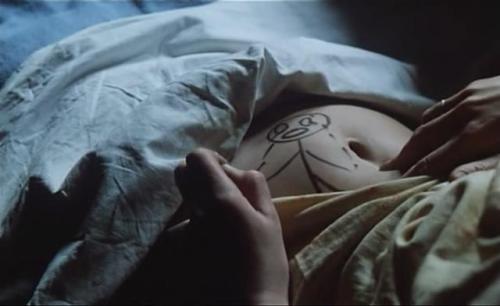
Image: Still from Ken Loach's Family Life, 1971
Dear Host Family,
My name is Martina and I would like to be your family’s au pair. I am from a good neighbourhood in Košice, a big city in The Slovak Republic. My mother is a nurse, my father is an engineer and my sister Lenka is studying to be a doctor. I myself have studied at the Academy of Education and Social Science and have taken A-Levels in Slovakian language and English language. I also speak German. As you can see we are a very hard working family who takes studying very seriously.
I also love to have fun, especially with sports. I love tennis and running and to ride bikes. I look forward to cycling on the exciting streets of London.
But please, do not worry, I am very clean. I shower daily and use deodorant twice a day. I also change my panties and socks every day. I change my bra once a week. I have a different bra for sports. I wash this after every use. I am very sporty and would like to ride a bicycle with a helmet. I have short, easy hair.
I love children and would like one day to have my own – but not soon so please do not be concerned about this. If you are worried let me tell you I have been taking the pill named Microgynon 30 for 12 years with zero problems. I can assure you also that my menstrual cycle will not affect my moods or behaviour, I am very stable and happy. If you are worried still I can have the IUD fitted which the doctor says is more effective than sterilisation. But let me tell you I take strong anti-depressant pills which means I suffer almost no sexual urges whatsoever so I can promise you I will be 100% abstinent during my stay with you (and I do not find the English style of man is for me!). Even still I can take pregnancy tests every six months as many of my friends do in their host families. Just to be sure.
I will love your children very much. I wake up early and like to get out so taking the children and the dog to school sounds great and believe it or not I like the rainy weather too! So this is not a problem. I have a small problem with something called OCD but it allows me to clean very well, so if you leave your home in my hands it will always be spotless. Ironing relaxes me. I love to cook, it is my secret dream to cook in a good restaurant so please allow me to make fun and healthy meals for the lovely children, and even the parents too!
Also because I am a Leo I am a very loyal girl. I will be totally devoted to your children. I will not even look at another child. If another child falls over and damages itself in the park, and blood comes outside, I will not help it. I will quietly monitor the friends the children have to see if any of them are taking advantage of your clever boys! I do not like copy-cats.
I will not be too emotional when it comes to missing my own family. I will be in silent, almost physical pain because of the distance but due to modern technologies like Skype I can keep in touch with them. It is ok for me that you can never meet eyes on Skype. My loneliness will be hidden from the children very well. I am a keen swimmer.
I love to look at art and old things in museums and am so excited to see London and all the beautiful things. Do you know much about Slovakian art? I will be happy to tell you if we meet!
I have heard from my friend of the Ikea style of furniture you favour. I know this type is easy to clean with a dry cloth or rag. I can provide my own rag/s. I look forward to ample storage.
To me, being an au pair will be fun and a challenge and I want to see the world and how other families live. My English is very good but I want it to be perfect, just like your children will be if they have me as an au pair!
I am looking forward to hearing from you, thank you.
From
Martina.
P.S. I see you say the bathroom is shared, this may be a problem for me. I do not want to be un-ladylike but I need to tell you I suffer from IBS so I need an en suite toilet. My movements are painful and I have also a flatulence. This will be made worse by the change in my environment. I hope you understand my need for private toilet facilities. If this is not possible perhaps the children and I can arrange a rota.
‘LABOUR’ cries child cries labour cries tears
push push!
that’s not labour, that’s nature, darling
help me, look after me, it hurts!
here pills, must move on, next mom
‘Mom’ cries child cries it it
must dry tears – this the object of my labour?
maths exercise (you child, must succeed, try once more)
count hours x 0 pounds x stopped heartbeat
this the value of my labour
‘labour labour’ I will pay you to perform
on the object of my affective labour by the hour in time to run
with the school run run flow forward why, you ran?
ah the grandmas count their hours well then you may earn.
change your standing participate in the accumulation chaaaain
wait – are you the reason I don’t get paid?
but I do – the state throws some goodies at me
and wants some names dates and cleanest of clothes.
good behaviour, watch what parents are up to... outside the accumulation
chain? for you maybe, well-bred few. not those who bear and bear and bear
and feed and feed and feed and fuck had enough of producing your pension
or take it away, hah
this, dear, threads itself through the ages. the workhouse, the servant,
childcarer, and you (no clue). as long as you don’t try to have them too. must
be on one standing with them helpless little lots. I have power to pay you or
if I wish not. neither the little ones nor old ones get cash. you’re all of the
same lot, no power, not not. but go ahead fighting amongst your old selves.
it’s called reproduction of the capitalist relaaaations. hah.
there’s nothing idyllic in this kind of shit. now I can afford it I delegate it.
and yous will keep doing the crap. so your little ones grow big. become like
me and pay the likes of yous for the same old doubletrick.
outside of the sphere you say? all data proves you wrong, dear. whose
property are children? not yours, they’re the state’s to throw into the dirt pit
whenever seen fit
yous, you, your little tiny shrieks. don’t you know your greatgrandma was
an immigrant too. The asylum saw the last of her, past caring indeed. just
cause you can buy yourself out/ don’t be so sure now about your little
emotive clout.
Mira Mattar <miramattar@gmail.com><twitter.com/miramattar> is a sometime governess, freelance writer and contributing editor to Mute and 3:AM. She lives in South London and blogs at http://hermouth.blogspot.com/
Madame Tlank continues to stir up the <s> in front of care
Footnotes
1 The very fact that Marx finds it necessary to qualify waged/unwaged, productive/unproductive etc. labour as such should be enough to establish that the category of ‘labour’ in general is not identical to the waged and productive.
2 Impersonate an employer and submit your wish list at, http://www.businesslink.gov.uk/bdotg/action/detail.... The Browne Report on higher education is one high profile product of this kind of receptiveness, http://www.telegraph.co.uk/education/8058285/The-B...
3 Shulamith Firestone, ‘Down with Childhood’ in The Dialectic of Sex: The Case for a Feminist Revolution, London: Paladin Press, 1972.
4 Anonymous, The Bio-Power Digest, ‘Endless Youth’, 2004, privately circulated.
5 A prime example of this can be found in the ‘Letting Children be Children’ report by the Mothers’ Union (sic), http://www.themothersunion.org/letting_children_be...
6 Cf. the proliferation of child rearing manuals on how to best ‘improve’ children, especially during the first three years of their lives.
7 For a succinct account of Richard Thaler’s ‘Nudge’ theory and its adoption by the UK government’s Behavioural Insight Team, see Michael Fitzpatrick’s ‘Public health and the obsession with behaviour’, Spiked, May 2010, http://www.spiked-online.com/index.php/site/articl...
8 See, Firestone, op. cit.
9 See Mme Tlank, ‘The Battle of all Mothers’, Mute Vol2 #9, Your Five a Day!, 2008, http://www.metamute.org/en/The-Battle-of-all-Mothers
10 Financial Times, special reports, May 31 June 1 2011.
11 For a comprehensive account of this see Rob Ray, ‘The 3 Ps – PFI, Private Equity, and Pensions’, Mute Vol2 #6, Living in a Bubble: Credit, Debt and Crisis, 2007, http://www.metamute.org/en/The-3-Ps
12 See Mme Tlank, op. cit.
13 A rare example of professional jargon actually proving ‘fit for purpose’, to the extent that it acknowledges the war waged every day in benefit offices.
14 The question of struggle ‘in and against’ capital is taken seriously in the feminist work of Big Flame (1970-1984), now archived at http://bigflameuk.wordpress.com/
Mute Books Orders
For Mute Books distribution contact Anagram Books
contact@anagrambooks.com
For online purchases visit anagrambooks.com


